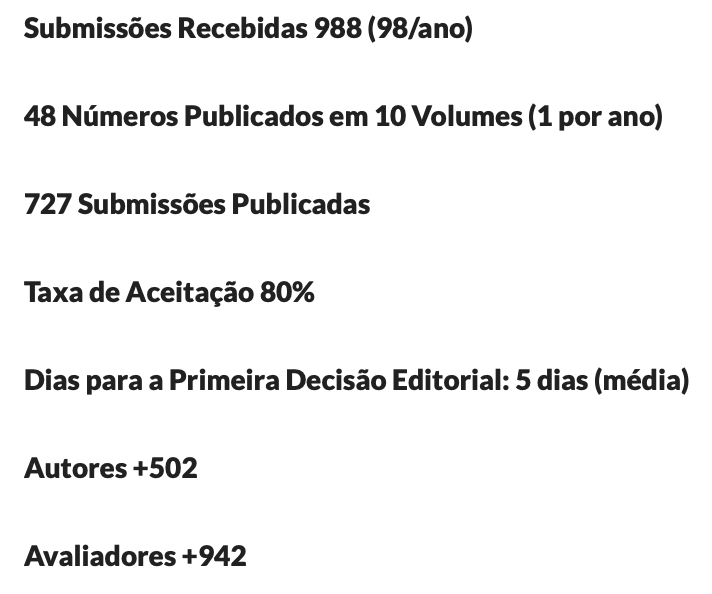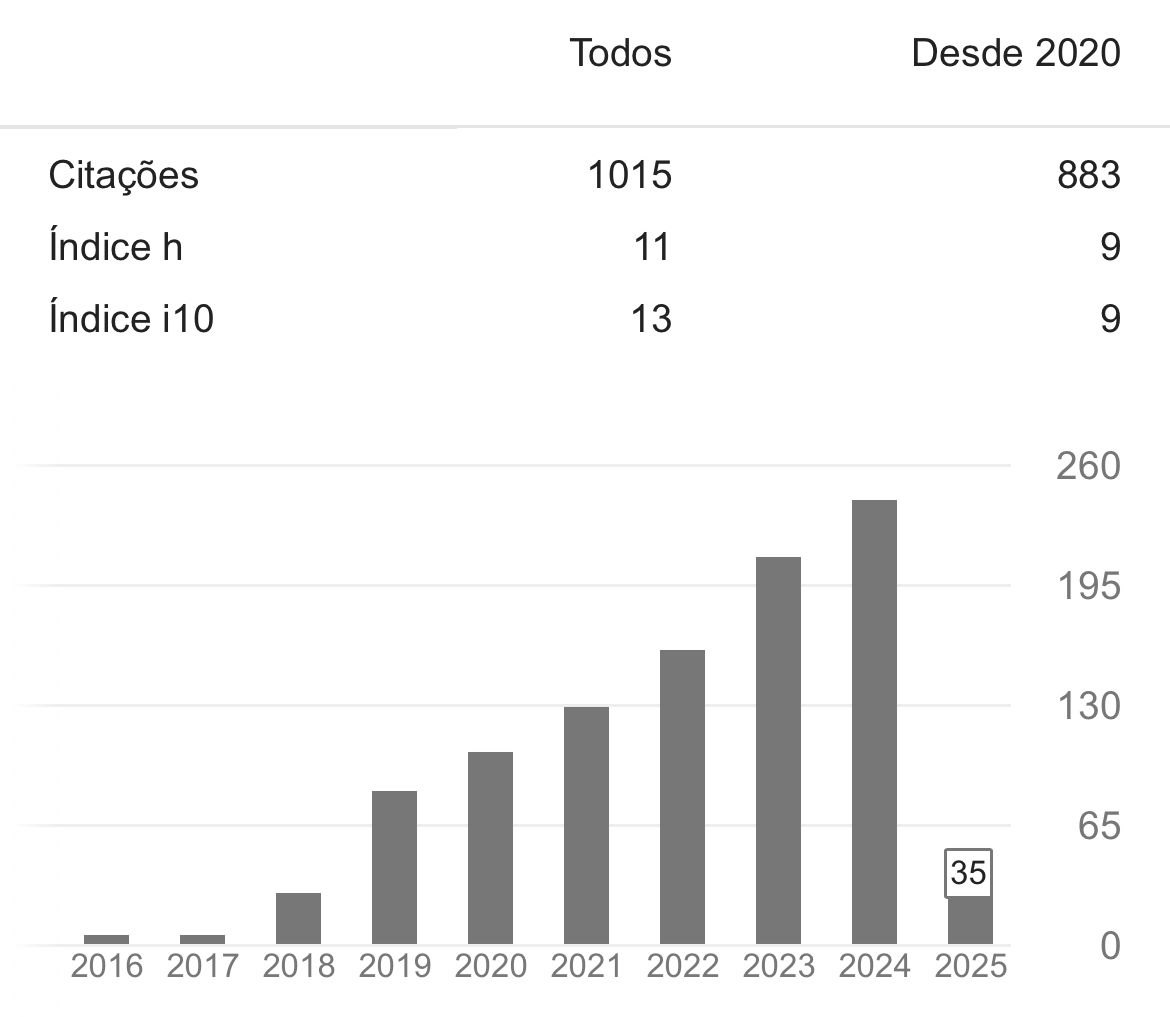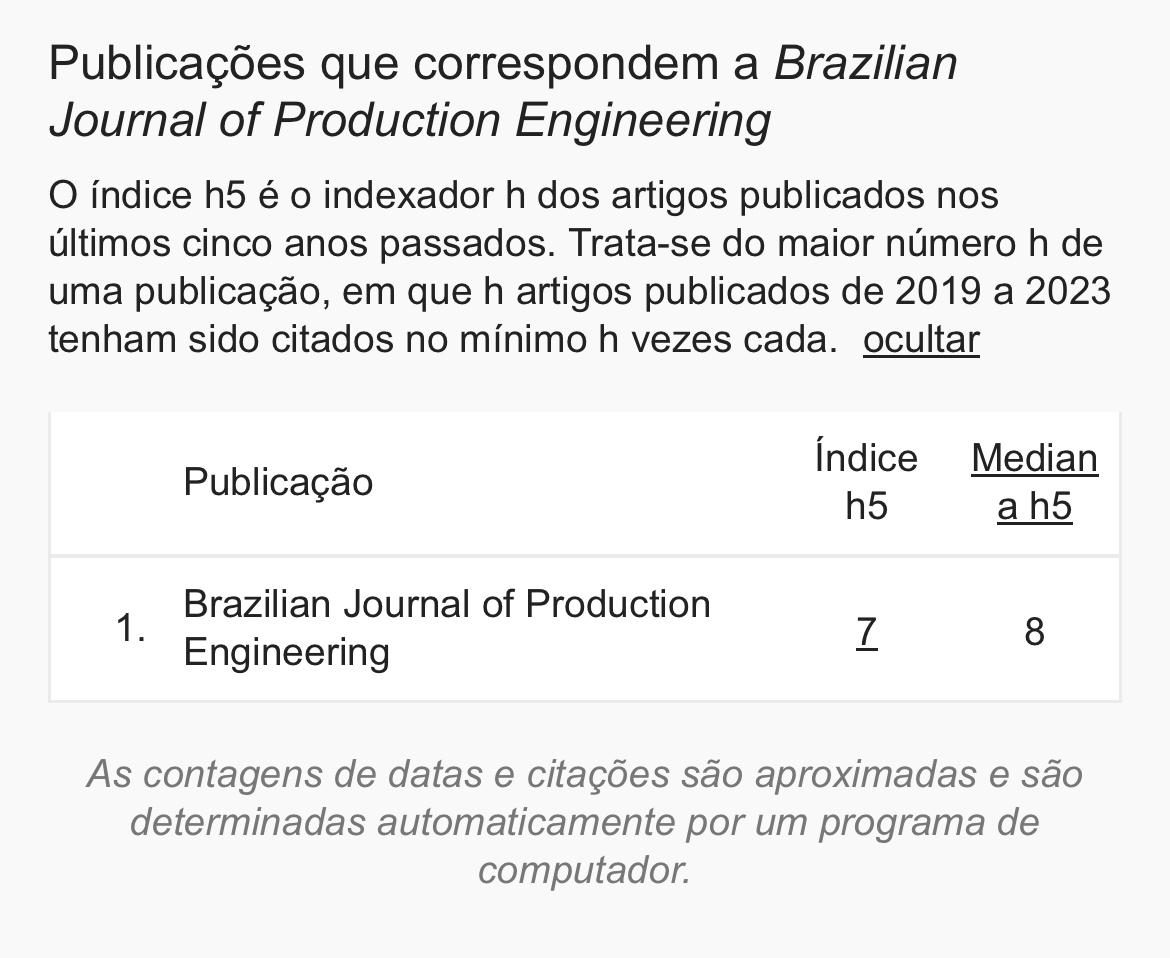Como avaliar o impacto do blockchain sobre segurança e privacidade de dados na cadeia de suprimentos digital? Uma revisão do estado da arte
DOI:
https://doi.org/10.47456/bjpe.v10i2.44284Palavras-chave:
Segurança, Privacidade de Dados, Cadeia de Suprimento Digital, Indicadores, MedidasResumo
As organizações e Cadeias de Suprimentos Digitais (CSD) da Indústria 4.0 são desafiadas a manter a privacidade e a segurança de dados em seus sistemas devido a violações cibernéticas, falta de gerenciamento e confiança entre seus membros, entre outras questões. Neste cenário, o Blockchain (BCK) surgiu como uma alternativa para manter informações descentralizadas, seguras e confiáveis aos participantes. Para verificar a efetividade da adoção do BCK, são apontados os requisitos-chave que sintetizam os critérios que devem ser considerados para mensurar diferentes aspectos que impactam na segurança e na privacidade de dados em CSD. Na sequência, mediante uma revisão sistemática da literatura publicada nos últimos 10 anos, apoiada pela metodologia PRISMA e pela técnica de amostragem snowball sampling, foram identificados os principais fatores que devem ser avaliados, como constructos e medidas, os quais são agrupados em elementos que representam o que deve ser medido de alguma forma pelas CSD. Assim, uma revisão do estado da arte sobre o desempenho do BCK em CSD é realizada e as principais dificuldades de medição e oportunidades de melhorias são discutidas.
Downloads
Referências
Aljabhan, B. & Obaidat, M. A. (2023). Privacy-Preserving BCK Framework for Supply Chain Management: Perceptive Craving Game Search. Sustainability. 1-23. https://doi.org/10.3390/su15086905 DOI: https://doi.org/10.3390/su15086905
Aslam, J., Saleem, A., & Kim, Y. B. (2023). BCK-enabled supply chain management: integrated impact on firm performance and robustness capabilities. Business Process Management Journal, 29(6), 1680-1705. https://doi.org/10.1108/BPMJ-03-2023-0165 DOI: https://doi.org/10.1108/BPMJ-03-2023-0165
Balfaqih, H., Nopiah, Z. M., Saibani, N., & Al-Nory, M.T. (2026). Review of supply chain performance measurement systems: 1998-2015. Computers In Industry, 82, 135-150. https://doi.org/10.1016/j.compind.2016.07.002 DOI: https://doi.org/10.1016/j.compind.2016.07.002
Bhattacharya, R. & Bandyopadhyay, S. (2011). A review of the causes of bullwhip effect in a supply chain. The International Journal of Advanced Manufacturing Technology, 54(9-12), 1245-1261. https://doi.org/10.1007/s00170-010-2987-6 DOI: https://doi.org/10.1007/s00170-010-2987-6
Bigini, G. Freschi V., & Lattanzi, E. (2020). A Review on BCK for the Internet of Medical Things: definitions, challenges, applications, and vision. Future Internet, 12(12), 1-16. https://doi.org/10.3390/fi12120208 DOI: https://doi.org/10.3390/fi12120208
Budak, A. & Çoban, V. (2021). Evaluation of the impact of BCK technology on supply chain using cognitive maps. Expert Systems with Applications, 184, 115455. https://doi.org/10.1016/j.eswa.2021.115455 DOI: https://doi.org/10.1016/j.eswa.2021.115455
Buntak, K., Kovačić, M., & Mutavdžija M. (2021). Measuring Digital Transformation Maturity of Supply Chain. Tehni?Ki Glasnik, 15(2), 199-204. https://doi.org/10.31803/tg-20200414191933 DOI: https://doi.org/10.31803/tg-20200414191933
Chopra, S. & Meindl, P. (2011). Supply Chain Management: strategy, planning and operation. New York: Pearson Prentice Hall. 529 p.
Çikmak, S., Kantoglu, B., & Kirbaç, G. (2023). Evaluation of the effects of BCK technology characteristics on SCOR model supply chain perfor. International Journal of Logistics Research And Applications, 1-31. https://doi.org/10.1080/13675567.2023.2193736 DOI: https://doi.org/10.1080/13675567.2023.2193736
Dolgui, A., Ivanov, D., & Sokolov, B. (2017). Ripple effect in the supply chain: an analysis and recent literature. International Journal of Production Research, 56(1-2), 414-430. https://doi.org/10.1080/00207543.2017.1387680 DOI: https://doi.org/10.1080/00207543.2017.1387680
Eur-Lex, Access to European Union Law. Constituição (2016). General Data Protection Regulation. Brussels, 27 abr. 2016. Recuperado de https://eur-lex.europa.eu/eli/reg/2016/679/oj
Fares, N. & Lloret, J. (2023) Barriers to supply chain performance measurement during disruptions such as the COVID-19 pandemic. International Journal of Quality e Reliability Management, 40(5), 1316-1342. https://doi.org/10.1108/IJQRM-03-2022-0095 DOI: https://doi.org/10.1108/IJQRM-03-2022-0095
Frederico, G. F., Garza-Reyes, J. A., Anosike,A., & Kumar V. (2019). Supply Chain 4.0: concepts, maturity and research agenda. Supply Chain Management, 25(2), 262-282. https://doi.org/10.1108/SCM-09-2018-0339 DOI: https://doi.org/10.1108/SCM-09-2018-0339
Gökalp, E., Gökalp, M. O., & Çoban S. (2020). BCK-Based Supply Chain Management: understanding the determinants of adoption in the context of organizations. Information Systems Management, 39(2), 100-121. https://doi.org/10.1080/10580530.2020.1812014 DOI: https://doi.org/10.1080/10580530.2020.1812014
Govindan, K., kannan, D., Jorgensen, T. B., & Nielse, T. S. (2022). Supply Chain 4.0 performance measurement: a systematic literature review, framework development, and empirical evidence. Transportation Research Part e: Logistics and Transportation Review, 164, 102725. https://doi.org/10.1016/j.tre.2022.102725 DOI: https://doi.org/10.1016/j.tre.2022.102725
Hani, J. B. (2022). The influence of supply chain management practices on supply chain performance: the moderating role of information quality. Business, Management and Economics Engineering, 20(1), 152-171. https://doi.org/10.3846/bmee.2022.16597 DOI: https://doi.org/10.3846/bmee.2022.16597
Harding, K. (2014). Zotero. Journal of The Canadian Health Libraries Association / Journal de L'Association Des Bibliothèques de, 34(1), 41. https://doi.org/10.5596/c13-003. DOI: https://doi.org/10.5596/c13-003
Hellweg, F., Lechtenberg, S., Hellingrath, B., & Thomé, A. M. T. (2021). Literature Review on Maturity Models for Digital Supply Chains. Brazilian Journal of Operations e Production Management, 18(3), 1-12. https://doi.org/10.14488/BJOPM.2021.022 DOI: https://doi.org/10.14488/BJOPM.2021.022
Hong, L. & Hales, D. N. (2021). BCK performance in supply chain management: application in BCK integration companies. Industrial Management e Data Systems, 121(9), 1969-1996. https://doi.org/10.1108/IMDS-10-2020-0598 DOI: https://doi.org/10.1108/IMDS-10-2020-0598
Johnson, M. & Stevens, G. C. (2016) Integrating the Supply Chain... 25 years on. International Journal of Physical Distribution e Logistics Management. Online, p. 19-42. https://doi.org/10.1108/IJPDLM-07-2015-0175 DOI: https://doi.org/10.1108/IJPDLM-07-2015-0175
Joshi, A., Kale, S., Chandel, S., & Pal, D. K. (2015). Likert Scale: explored and explained. British Journal Of Applied Science e Technology, 7(4), 396-403. https://doi.org/10.9734/BJAST/2015/14975 DOI: https://doi.org/10.9734/BJAST/2015/14975
Jum’a, L. (2023). The role of BCK-enabled supply chain applications in improving supply chain performance: the case of jordanian manufacturing sector. Management Research Review, 46(10), 1315-1333. https://doi.org/10.1108/MRR-04-2022-0298 DOI: https://doi.org/10.1108/MRR-04-2022-0298
Kakhki, M. D. & Gargeya, V. B. (2019) Information systems for supply chain management: a systematic literature analysis. International Journal Of Production Research, v. 57, n. 15-16, p. 5318-5339. https://doi.org/10.1080/00207543.2019.1570376 DOI: https://doi.org/10.1080/00207543.2019.1570376
Kamble, S. S. & Gunasekaran, A. (2019). Big data-driven supply chain performance measurement system: a review and framework for implementation. International Journal of Production Research, 58(1), 65-86. https://doi.org/10.1080/00207543.2019.1630770. DOI: https://doi.org/10.1080/00207543.2019.1630770
Kim, J. S. & Shin, N. (2019). The Impact of BCK Technology Application on Supply Chain Partnership and Performance. Sustainability, 11(21), 6181.
https://doi.org/10.3390/su11216181 DOI: https://doi.org/10.3390/su11216181
Kopyto, M., Lechler, S., Gracht, H. A. V. D., & Hartmann, E. (2020). Potentials of BCK technology in supply chain management: long-term judgments of an international expert panel. Technological Forecasting And Social Change, 161, 120330.
https://doi.org/10.1016/j.techfore.2020.120330 DOI: https://doi.org/10.1016/j.techfore.2020.120330
Li, Z. P., Ceong, H. T., & Lee, S. J. (2021). The Effect of BCK Operation Capabilities on Competitive Performance in Supply Chain Management. Sustainability, 13(21), 12078. https://doi.org/10.1080/00207543.2015.1026614 DOI: https://doi.org/10.3390/su132112078
Maestrini, V., Luzzini, D., Caniato, F., Maccarrone, P. e Ronchi, S. (2018). Measuring supply chain performance: a lifecycle framework and a case study. International Journal of Operations e Production Management, 38(4), 934-956. https://doi.org/10.1108/IJOPM-07-2015-0455 DOI: https://doi.org/10.1108/IJOPM-07-2015-0455
Mahdiraji, H. A., Yaftiyan, F., Kamardi, A. A. A., Garza-Reyes, J. A., & Hajiagha, S. H. R (2022). The role of Industry 4.0 technologies on performance measurement systems of supply chains during global pandemics: an interval-valued intuitionistic hesitant fuzzy approach. International Journal of Quality e Reliability Management, 40(5), 1147-1171. https://doi.org/10.1108/IJQRM-03-2022-0094 DOI: https://doi.org/10.1108/IJQRM-03-2022-0094
Mangla, S. K., Kusi-Sarpong, S., Luthra, S., Bai, C., Jakhar, S. K., & Khan, S. A. (2020). Operational excellence for improving sustainable supply chain performance. Resources, Conservation and Recycling, 162, 105025. https://doi.org/10.1016/j.resconrec.2020.105025 DOI: https://doi.org/10.1016/j.resconrec.2020.105025
Marinagi, C., Reklitis, P., Trivellas, P., & Sakas D. (2023). The Impact of Industry 4.0 Technologies on Key Performance Indicators for a Resilient Supply Chain 4.0. Sustainability, 15(6), 5185. https://doi.org/10.3390/su15065185 DOI: https://doi.org/10.3390/su15065185
Melnyk, S. A., Schoenherr,T., Speier-Pero,C., Peters, C., Chang, J. F., & Friday, D. (2021). New challenges in supply chain management: cybersecurity across the supply chain. International Journal of Production Research, 60(1), 162-183. https://doi.org/10.1080/00207543.2021.1984606 DOI: https://doi.org/10.1080/00207543.2021.1984606
Merrad, Y., Habaebi, M. H., Elsheikh, E. A. A., Suliman, F. E. M., Islam, M. R., Gunawan, T. S., & Mesri, M. (2022). BCK: consensus algorithm key performance indicators, trade-offs, current trends, common drawbacks, and no. Mathematics, 10(15), 2754. https://doi.org/10.3390/math10152754 DOI: https://doi.org/10.3390/math10152754
Moher, D., Liberati, A., Tetzlaff, J., & Altman,D. G. (2010). Preferred reporting items for systematic reviews and meta-analyses: The PRISMA statement. International Journal of Surgery, 8, 336-341. https://doi.org/10.1371/journal.pmed.1000097 DOI: https://doi.org/10.1016/j.ijsu.2010.02.007
Naderifar, M., Goli, H., & Ghaljaie, F. (2017). Snowball Sampling: A Purposeful Method of Sampling in Qualitative Research. The Strides in Development Of Medical Education Journal, 14, 1-4. https://doi.org/10.5812/sdme.67670 DOI: https://doi.org/10.5812/sdme.67670
Oláh, J., Krisán, E., Kiss, A., Lakner, Z., & Popp J. (2020). PRISMA Statement for Reporting Literature Searches in Systematic Reviews of the Bioethanol Sector. Energies, 13(9), 2323. https://doi.org/10.3390/en13092323 DOI: https://doi.org/10.3390/en13092323
Patidar, A., Sharma, M., Agrawal, R., & Sangwan, K.S. (2022). Supply chain resilience and its key performance indicators: an evaluation under industry 4.0 and sustainability perspective. Management of Environmental Quality: An International Journal, 34(4), 962-980. https://doi.org/10.1108/MEQ-03-2022-0091 DOI: https://doi.org/10.1108/MEQ-03-2022-0091
Piurcosky, F. P., Calegário, C., Costa, M., & Frogeri, R. F. (2019). A lei geral de proteção de dados pessoais em empresas brasileiras: uma análise de múltiplos casos. Suma de Negocios, 10(23), 89-99. http://dx.doi.org/10.14349/sumneg/2019.V10.N23.A2 DOI: https://doi.org/10.14349/sumneg/2019.V10.N23.A2
Prisma Statement. (2023). Home. Recuperado de: http://www.prisma-statement.org/
Queiroz, M. M., Pereira, S. C. F., Telles, R., & Machado, M. C. (2019). Industry 4.0 and digital supply chain capabilities. Benchmarking: An International Journal, 28(5), 1761-1782. https://doi.org/10.1108/BIJ-12-2018-0435 DOI: https://doi.org/10.1108/BIJ-12-2018-0435
Roever, L. (2020). Guia prático de revisão sistemática e metanálise. Rio de Janeiro: Thieme Revinter. 86 p.
Ronaghi, M. H. (2022). Contextualizing the impact of BCK technology on the performance of new firms: the role of corporate governance as an intermediate outcome. The Journal of High Technology Management Research, 33(2), 100438-100451. https://doi.org/10.1016/j.hitech.2022.100438 DOI: https://doi.org/10.1016/j.hitech.2022.100438
Sammarco, G., Ruzza, D., Vishkaei, B. M., & De Giovanni, P. (2022). The Impact of Digital Technologies on Company Restoration Time Following the COVID-19 Pandemic. Sustainability, 14(22), 15266. https://doi.org/10.3390/su142215266 DOI: https://doi.org/10.3390/su142215266
Silvestre, B. S., Monteiro, M. S., Viana, F. L. E., & Filho, J. M. de S. (2018). Challenges for sustainable supply chain management: when stakeholder collaboration becomes conducive to corruption. Journal of Cleaner Production, 194, 766-776. https://doi.org/10.1016/j.jclepro.2018.05.127 DOI: https://doi.org/10.1016/j.jclepro.2018.05.127
Supply Chain Council – SCC. (2023). Supply Chain Operations Reference Model SCOR, 12. United States of America.
Tambaré, P., Meshram, C., Lee, C. C., Ramteke, R. J., & Imoize, A. L. (2021). Performance Measurement System and Quality Management in Data-Driven Industry 4.0: a review. Sensors, 22(1), 224-249. https://doi.org/10.3390/s22010224 DOI: https://doi.org/10.3390/s22010224
Tokkozhina, U., Martins, A. L., & Ferreira, J. C. (2020). Use of BCK Technology to Manage the Supply Chains: Comparison of Perspectives between Technol. Journal of Theoretical and Applied Electronic Commerce Research. 1616-1632. https://doi.org/10.3390/jtaer17040082 DOI: https://doi.org/10.3390/jtaer17040082
Weerabahu, W. M. S., K. Samaranayake, P., Nakandala, D., & Hurriyet, H. (2022). Digital supply chain research trends: a systematic review and a maturity model for adoption. Benchmarking, 29, 3040-3066. https://doi.org/10.1108/BIJ-12-2021-0782 DOI: https://doi.org/10.1108/BIJ-12-2021-0782

Downloads
Publicado
Como Citar
Edição
Seção
Licença
Copyright (c) 2024 Brazilian Journal of Production Engineering

Este trabalho está licenciado sob uma licença Creative Commons Attribution-NonCommercial-ShareAlike 4.0 International License.

Atribuição 4.0 internacional CC BY 4.0 Deed
Esta licença permite que outros remixem, adaptem e desenvolvam seu trabalho não comercialmente, contanto que eles creditem a você e licenciem suas novas criações sob os mesmos termos.
















































































